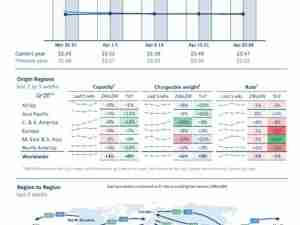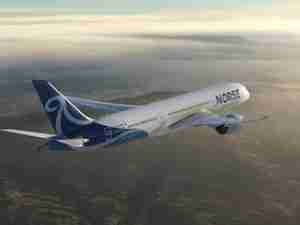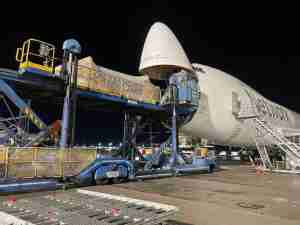Singapore Airlines Ltd. posted a third consecutive quarterly profit on Tuesday, pushing the damage of Covid further into the past as air travel continued its strong recovery in the three months through December.
The company’s net income was S$628 million ($469 million), rising from a profit of S$84.7 million a year earlier, it said in a statement Tuesday. Revenue was S$4.85 billion, up from S$2.3 billion.
After suffering record losses in the depths of the pandemic, Singapore Airlines bounced back with the restart of quarantine-free travel to its home market about a year ago. Passenger load factor — a measure of how many seats are filled on planes — was 87.4% for the quarter, up from just 9% in April 2020. That figure includes low-cost unit Scoot Airlines.
“Demand for air travel is expected to be robust in the fourth quarter, supported by the recovery in East Asia as travel restrictions ease across China, Hong Kong, Japan, and Taiwan,” the company said. “Forward sales remain strong across all markets for both leisure and business travel, as well as all cabin classes.”
Still, the industry faces geopolitical challenges, slowing economic growth, high cost inflation and elevated fuel prices, as well as likely intensifying competition, the airline said, adding that its financial position will help it “retain its leadership position.”
Singapore Airlines and Scoot are putting on services to China as it reopens to international travel. As of the end of 2022, the two had a total of 188 passenger aircraft in their fleets. The flagship carrier will take delivery of two more widebody aircraft from Boeing Co. and Airbus SE this quarter, and Scoot plans to add nine Embraer SA planes to its fleet starting next year.
Singapore Airlines agreed to merge Vistara, its Indian affiliate, with Tata Group’s Air India Ltd. in November, taking a 25.1% stake in the bigger entity for $250 million. Air India placed an order for as many as 840 jets from Airbus SE and Boeing Co. this month — the biggest in commercial aviation history and one that opens growth avenues for Singapore Airlines.
Citigroup Inc. analysts said the order is positive in the long term, but they rate Singapore Airlines as “sell,” saying it will lose S$300 million annually until the year ending March 2025 due to its association with Air India. It will also likely need to inject more capital into the Indian airline, they wrote in a note.
Singapore Airlines’ shares rose 8.4% in the quarter through December, taking last year’s rally to 11%. The stock is up 4.5% so far in 2023.








